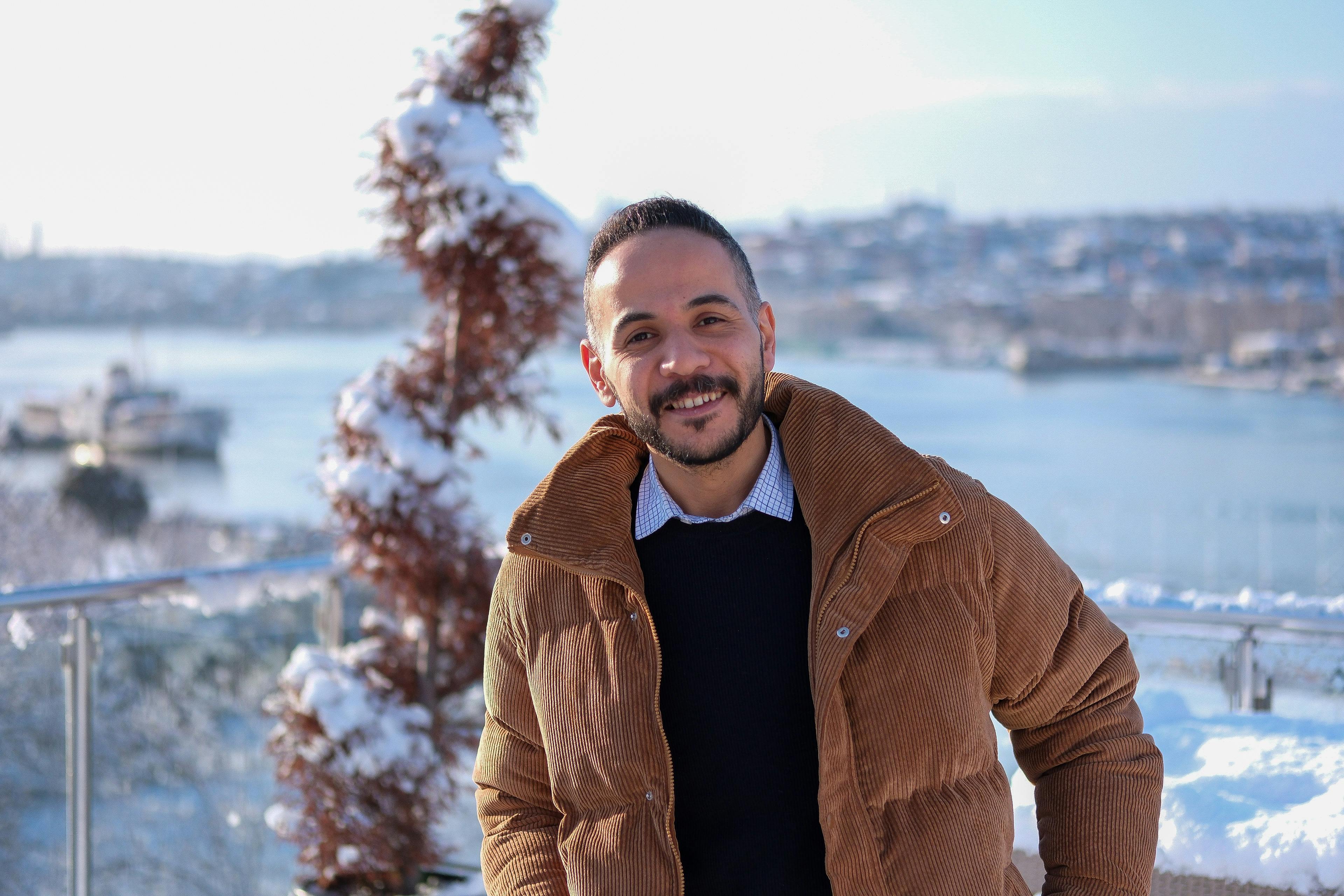It started subtly. A late dinner here, a forgotten meeting there. Then the phone calls, always taken in the other room. The way he’d flinch if I got too close to his screen. I told myself I was being paranoid. We’d been together for a decade, married for eight. He was my rock, my safe harbor. But the harbor was starting to feel… distant. Cold, even.
I tried to talk to him. “Is everything okay?” I’d ask, my voice small. He’d just grunt, or say work was stressful, or that I was imagining things. His eyes, though, they held a sadness I didn’t recognize, a weariness that went beyond a tough week. My gut, however, screamed a different story. It was a visceral, sickening clench in my stomach that wouldn’t let up.
For weeks, it gnawed at me. I’d wake in the dead of night, heart pounding, listening. Always listening. The quiet creak of the floorboards, the soft click of the front door. Sometimes, the car starting. He’d be gone before I even knew it. Where was he going? And why did he always return looking even more shattered than when he left?

A happy man in the snow | Source: Pexels
One night, I couldn’t take it anymore.
It was 3 AM. The house was silent save for the hum of the refrigerator. I heard the familiar rustle, the quiet footsteps. My heart was a frantic drum against my ribs. I lay absolutely still, barely breathing, pretending to be asleep. I heard him dress, the soft zip of his jacket. The light click of the door. The sound of his car backing out of the driveway.
That was it. My breaking point.
I threw off the covers. My hands trembled as I pulled on the nearest clothes—jeans, an old hoodie. No makeup, hair a mess. I didn’t care. All I cared about was knowing. Was stopping this agonizing uncertainty. I grabbed my keys, slipped out the door, and got into my car. The engine rumbled to life, a loud roar in the silent night. Too loud, I thought, he’ll hear me. But he was already a block ahead.

A man’s hand starting the ignition of a vehicle | Source: Unsplash
I kept a safe distance, two or three cars behind, turning off my headlights whenever he turned, using the ambient streetlights to guide me. My mind raced. What am I doing? What if he sees me? What if I find something I can’t unsee? The last thought made me clench the steering wheel until my knuckles were white. But what if I don’t find it? What if this is all in my head? No. My gut had never been wrong.
He drove for a good twenty minutes, taking us through the quiet, sleeping suburbs, then into the older part of town, where the streets were narrower and the buildings stood shoulder to shoulder, their darkened windows like vacant eyes. My stomach churned. This wasn’t the way to a friend’s house. This wasn’t a familiar route to anywhere we knew.

Kids wearing boots in the snow | Source: Pexels
Finally, he pulled into a small, dimly lit parking lot next to an old, brick community center. It looked deserted. No other cars. My breath hitched. He turned off his engine, sat for a moment, then got out. He didn’t look back. He just walked straight to the side entrance, which was barely visible in the shadow. And he went inside.
I waited. The silence was deafening, broken only by the frantic pounding in my ears. Every minute stretched into an eternity. What was happening in there? My imagination painted vivid, horrifying scenes. My mind screamed the worst possible scenario.
Then, about twenty minutes later, a light came on in one of the downstairs windows. And then… I saw her. A woman. She was tall, with dark hair, and she came out of the side door with him. She was smiling, a soft, comforting smile. And then she reached for him.

A man laughing in the snow | Source: Pexels
She pulled him into a hug. A long, intimate hug. His head rested on her shoulder. He seemed to melt into it, a raw vulnerability I hadn’t seen in him for months, maybe years. The way her hand stroked his back… it was tender, familiar. Oh god. My world crumbled right there, in that cold, desolate parking lot. My entire being vibrated with a silent, excruciating scream.
I didn’t wait for them to say goodbye. I didn’t wait for him to get back in his car. I just put mine in reverse, sped out of that lot, and drove home on autopilot, tears streaming down my face. My chest ached with a pain so profound I thought I might physically rupture. The man I loved, the father of our would-be children, was with someone else. At 3 AM. In a deserted community center.

An annoyed woman | Source: Pexels
I got home, silently slipped back into bed, and lay awake, staring at the ceiling, waiting for him. He came in about an hour later. I heard the quiet footsteps, the soft click of the door, the gentle creak as he got into bed beside me. He didn’t touch me. He just lay there, a few inches away, his breathing soft and even. I hated him. I hated him with a fiery, consuming passion I didn’t know I possessed. And I hated myself for being right.
The days that followed were a blur of coldness. We moved around each other like ghosts, two strangers trapped in the same house. The unspoken accusation hung heavy in the air, a suffocating blanket. I was distant, withdrawn. He was quiet, still tired, still heartbroken-looking. I waited for him to confess. I waited for him to explain. He never did. The silence was a cancer, eating away at what little remained of our marriage. Our decade-long love story was collapsing, brick by painful brick. And I let it. Because what was there to say? I saw it with my own eyes.
Months passed. The house became a mausoleum of memories. Our smiles, our laughter, our plans – all buried under the weight of his secret. I started talking to lawyers. He started sleeping in the guest room. The chasm between us grew wider, deeper, irreversible.

A granola bar | Source: Pexels
Then, one afternoon, I was cleaning out an old box of his in the garage, getting ready for the inevitable separation. Underneath a pile of old tax documents, I found a small, worn notebook. It wasn’t his usual neat handwriting. This was hurried, scrawled, tear-stained in places. I opened it, my heart pounding with a different kind of dread. Was this his love notes to her?
The first entry shattered me.
“14 years today. 3 AM. The moment our world stopped.”
I flipped through the pages. It wasn’t about another woman. It was about our child. The baby we lost, so many years ago, stillborn. The tragedy that had almost destroyed us, that we had both tried so hard to move past, to heal from. He hadn’t. Not really.

A sad boy sitting in a bus | Source: Midjourney
The notebook was a journal of his grief. Of his relentless, silent pain. Page after page of raw, aching memories, apologies to our lost child, dreams of what might have been. And then I saw it, scrawled repeatedly: “Community Center, 3 AM.”
He hadn’t been having an affair. He had been attending a support group. A grief support group for fathers who had lost children. He had found a place where he could talk, where he could be vulnerable, where he could finally process the trauma he’d buried deep inside him. The woman I saw him hug that night? Her name was Rebecca. She was the group facilitator, a therapist specializing in perinatal loss. I found her business card tucked into the back of the notebook.
He wasn’t cheating. He was trying to heal, trying to survive. He hadn’t told me because, as he wrote in a heartbreaking entry: “She’s moved on. She’s strong. I can’t drag her back to that place. I need to do this alone, for us.” He thought I had healed, because I had built walls, because I had tried to be strong for both of us. He saw my silence as strength, not as a different kind of pain.

An adult’s gloves | Source: Unsplash
And my suspicion, my silent accusations, my self-righteous hurt? It had killed our marriage more effectively than any affair ever could have. I had allowed fear and misplaced jealousy to destroy the man who was quietly, secretly, desperately trying to put himself back together after a loss we both shared. He thought he was protecting me. I thought he was betraying me.
By the time I understood, it was too late. Our marriage was gone. Collapsed not under the weight of a sordid secret, but under the unbearable burden of unspoken grief, profound misunderstanding, and my own devastating mistake. And the worst part? I was the one who drove the final nail into its coffin, all because I followed him at 3 A.M.
